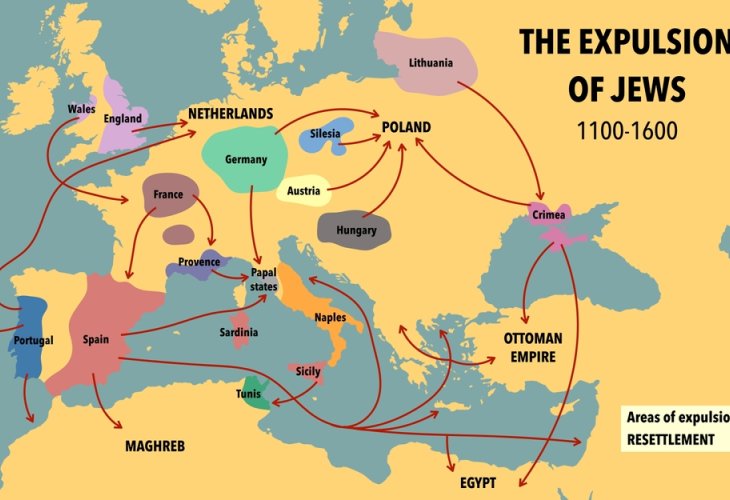From Exile to Reversal: The Jewish Struggle in Early Spain
King Sisebut of the Visigoths became a formidable adversary to the Jewish people. He fervently embraced Christianity, rejected his ancestral pagan roots, and in 612, initiated the expulsion of the Jewish community.
 (Illustration: Shutterstock)
(Illustration: Shutterstock)Toledo, Spain. A royal herald circles the city square. Leading the way is a drummer, vigorously beating the drum slung around his neck to capture attention. The herald blasts a trumpet and declares: "By the command of our lord, His Majesty the King, it is forbidden for Jews to live in Spain. Only those who embrace the Christian faith may remain!" This was followed by a series of humiliating decrees against the Jews.
Many Jews opted to flee to France and Africa, while others outwardly converted to Christianity, becoming known as *anusim*.
The scenario sounds familiar: in the 15th century, King Ferdinand of Spain decreed the expulsion of Jews or conversion, and many became *anusim*. However, our story unfolds in the 7th century, about seven hundred years earlier. The persecuting king back then was Sisebut.
Sisebut is considered one of the founding fathers of the Spanish nation. He was the King of the Visigoths, the ancient tribe that invaded the Iberian Peninsula. Residing in Toledo, Sisebut is regarded as a national hero with a prominent statue erected in his honor.
However, for the Jewish community, he was a nemesis. Enthusiastically adopting Christianity, he abandoned his forefathers' pagan beliefs, and upon ascending the throne in 612, he initiated the expulsion of Jews. Even then, some Jews were unable to withstand the trials and converted only in outward form.
Unlike 15th-century Spain, no Inquisition was established. Ten years after Sisebut ascended, he died abruptly, succeeded by King Suintila, who lifted the decrees against Jews, allowing the *anusim* to return to Judaism. But several years later, the high council of priests in Toledo decided to take the children of the *anusim* from their families, arguing they were born Christian and could not be Jewish. An operation commenced to abduct these children to raise them in Christian monasteries. The Jews fiercely opposed the decree, hiding their children, and indeed the decree was short-lived. A new king, Chintila, rose and abolished the decree, granting the Jews in Spain a period of peace for centuries. This period saw the growth of the Spanish Golden Age, a time of prosperity and creativity for the Jews, whose cultural fruits are still enjoyed today.

